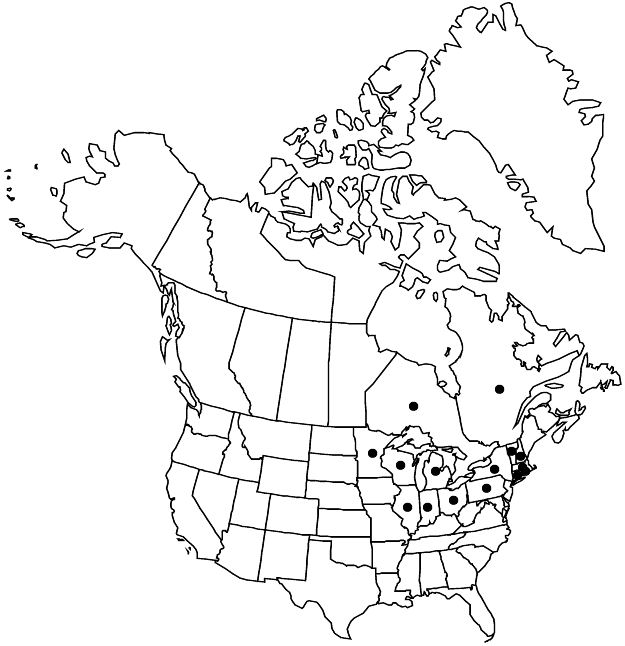familyRosaceae
subfamilyRosaceae subfam. Amygdaloideae
genusCrataegus
sectionCrataegus sect. Coccineae
speciesCrataegus coccinea
Crataegus coccinea var. pringlei
J. Bot. Res. Inst. Texas 1: 1005. 2007.
Common names: Pringle hawthorn aubépine de Pringle
Endemic
Basionym: Crataegus pringlei Sargent Rhodora 3: 21. 1901
Synonyms: C. exclusa Sargent C. gloriosa Sargent C. pringlei var. exclusa (Sargent) Eggleston
Revision as of 23:00, 5 November 2020 by imported>Volume Importer
Leaf blades broadly elliptic to elliptic-ovate, 4–7 cm (length/width = 1.2), conspicuously concavo-convex, base rounded to broadly cuneate, lobe sinuses often shallow. Stamens 8–10. Pomes usually oblong. 2n = 51, 68.
Phenology: Flowering May; fruiting Sep–Oct.
Habitat: Brush, woodland margins, fencerows, overgrown pastures
Elevation: 10–300 m
Distribution

Ont., Que., Conn., Ill., Ind., Mass., Mich., Minn., N.H., N.Y., Ohio, Pa., R.I., Vt., Wis.
Discussion
Variety pringlei is found throughout much of the range of the species, just reaching Quebec, but is absent in Virginia and North Carolina. Extreme forms are very distinct in appearance with their strikingly convex, broadly elliptic, usually shallowly incised leaves and often oblong fruit. Intermediates with var. coccinea are common.
Selected References
None.
Lower Taxa
None.